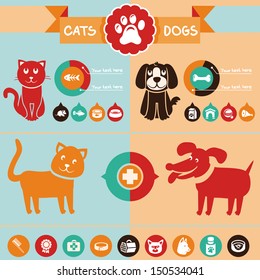Questions To Ask A Dog Daycare
Questions To Ask A Dog Daycare
Blog Article
Can Pet Dog Childcare Reason Disease?
Canines in childcare obtain lots of exercise, socializing with various other canines and unique experiences. This can be particularly handy for pups and canines with behavioral concerns.
There are a number of legal factors to consider you require to consider when beginning a doggy daycare company. These consist of the structure of your company and compliance with federal government regulations.
1. Canine Distemper
Canine distemper is spread through direct contact with the bodily fluids and waste of an infected canine, however it can likewise be transferred by means of shared water and food bowls or with air-borne beads. This extremely infectious ailment is most unsafe for pups, yet it can influence dogs of any kind of age and is fatal for a lot of if left unattended.
First signs and symptoms of canine distemper frequently imitate a cold, including drippy eyes and nose with watery or pus-like discharge. As the illness advances, a pet dog will certainly establish fever, coughing, minimized hunger, vomiting and diarrhea. The virus can also attack the nerve system, leading to seizures, jerking and partial or complete paralysis.
Respectable day cares minimize exposure to infection by needing vaccinations, routine health examinations and follow strict hygiene protocols. If your pup seems extremely weary or hopping, a day off might assist him recuperate, but you should avoid taking him back to childcare till these signs and symptoms improve.
2. Kennel Coughing
Kennel coughing, likewise referred to as contagious canine tracheobronchitis or Bordetella, is a highly contagious viral or bacterial condition that influences the respiratory system system. It's frequently transferred through the exchange of saliva or air droplets that an unwell pet dog breathes out. Social canines are at greater threat for infection because of their regular interaction with one another, such as when they play, share food or water, smell each other or just meet in a crowded setting like a pet dog park or day care.
The most common signs and symptom of kennel coughing is a consistent and powerful cough that seems like something embeded the throat or retching. Frequently, dogs will certainly spend frothy white phlegm. If left untreated, a pet can create pneumonia and be at major risk permanently.
A trustworthy childcare facility need to have stringent cleaning and sanitation methods, sterilize all toys, food and water bowls consistently, and be open regarding their vaccination plans. Maintaining your canine approximately day on their vaccinations, specifically for bordetella and canine flu, will considerably decrease their chances of getting the disease.
3. Parvovirus
Canine parvovirus, or parvo, is a highly transmittable viral health problem that can be fatal for puppies and young person dogs with inadequate immune systems. It's most typically spread out by straight contact with polluted dog feces-- which can take place when canines sniff, lick, or preference infected feces-- and indirectly from contaminated individuals, objects, or settings (like kennels, grooming areas and yards). Puppies and pets without total inoculation histories are especially prone to parvo.
The virus is exceptionally durable, enduring in the atmosphere for up to 9 years, and can easily be moved between pets by get in touch with through feces or on footwear, clothing, and bed linens contaminated with parvovirus. Otherwise treated quickly with IV fluids, electrolyte equilibrium, vomiting control drugs and prescription antibiotics to stop additional microbial infections, a canine will swiftly dehydrate and create severe looseness of the bowels, which leads to shock and blood poisoning. Parvo is difficult to treat once a pet dog has ended up being ill, yet with appropriate vet treatment, numerous pups places that board dogs near me do survive this ailment.
4. Canine Flu
Canine influenza infection is highly infectious and spreads via straight contact, sharing food and water bowls, licking or nuzzling various other dogs, with air-borne droplets, and via contaminated surfaces. Inoculation is effective in minimizing the threat of infection and outbreaks.
The majority of affected canines create a mild breathing infection with a coughing that lasts 1-3 weeks. They may likewise have nasal and eye discharge, sneezing, and lethargy. A few of one of the most serious cases lead to pneumonia and a high fever.
If your pet shows any of these signs and symptoms, do not bring them back to daycare up until they are healthy and balanced. If your canine is revealing signs of extreme exhaustion or limping, speak to your veterinarian immediately and make certain they get on good health supplements to assist construct their resistance. A veterinarian will examine your pet for signs of the influenza by taking an example from the nose or throat, and blood tests can be done to verify.